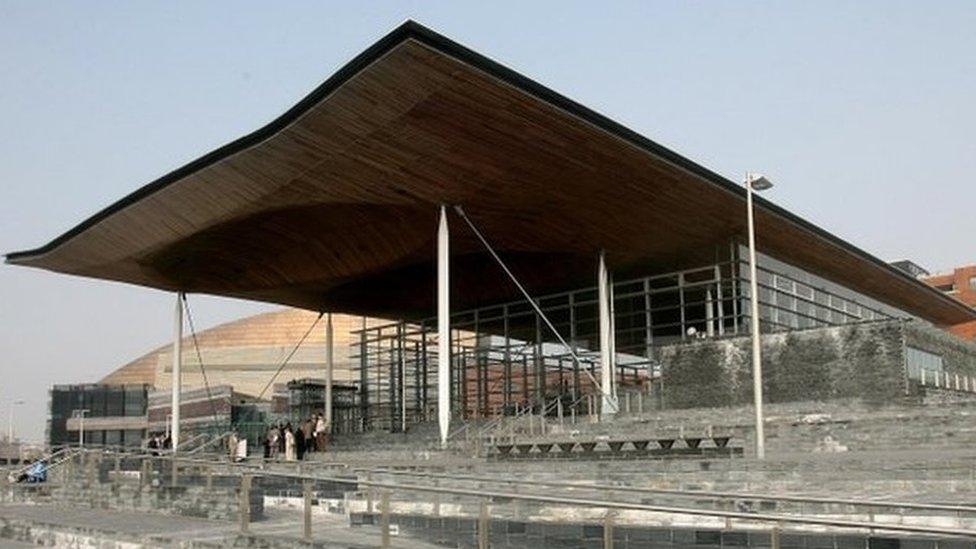UKIP AM Caroline Jones playing her part in politics
- Published
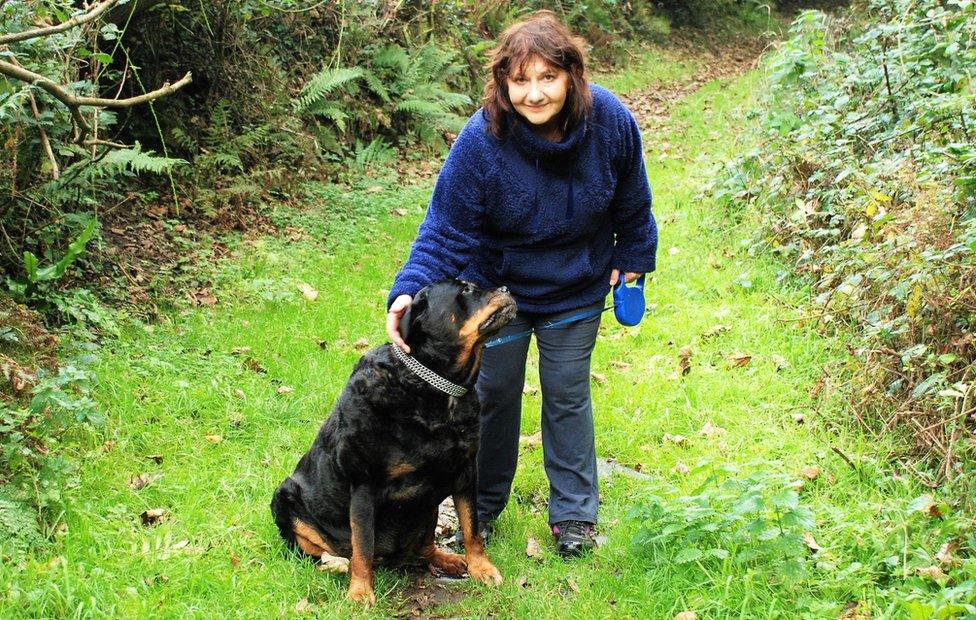
It was after showering on holiday in northern Cyprus that Caroline Jones first noticed the dent in her breast.
Having lost her mother to breast cancer, the alarm bells started ringing.
Back in Wales, she was referred to Neath Port Talbot Hospital for a mammogram and was "over the moon" when the results came back clear.
But, over a cup of tea in the hospital's cafe, Caroline explains that on the way out of the door following the test result "a consultant actually saved my life because he asked if I'd come in for a further examination".
The consultant's hunch that the results didn't add up proved to be correct.
"I think it's the first time I knew the meaning of shell-shocked," she says.
A mastectomy, the removal of lymph glands from her right arm, almost a year's worth of chemotherapy, and reconstruction would follow.
"That was the thing that turned my life upside down because I was getting married as well. I was thinking, am I planning to get married or am I planning a funeral?
"I know it sounds odd, but I didn't want to tie my husband-to-be to myself by getting married whilst this was going on."
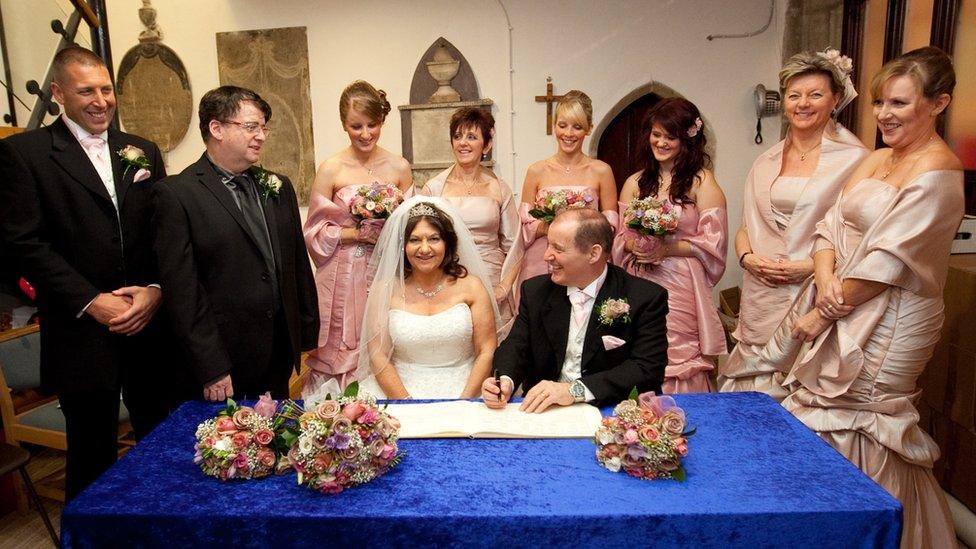
Not wanting to burden her fiancé, Alun, with her illness, they waited five years until getting married in September 2011.
BBC Radio Wales presenter Chris Needs walked Caroline down the aisle, the pair having "been friends for a number of years".
Praising the hospital staff as "first class", she says: "I basically owe my life to the consultant who called me back. If it wasn't for him, I wouldn't be here today."
In January, she celebrated 10 years since receiving the all-clear.
Although she "was never politically active growing up", Caroline's illness sparked a desire "to be involved in the NHS in some way, politically".
"I voted Labour all my life because my grandfather was a miner, he was a socialist, and he told me which way to vote," she says.
"I never thought anything more of it, really. Never looked at politics and so on."
Born in the old Llwynypia Hospital in the Rhondda on April the first - "no fool though" - in 1955, she lived with her grandfather, grandmother, great-grandmother, mum and dad in a terraced house in Coed Ely before moving to a prefabricated house in Tonyrefail when her sister, her only sibling, was born.
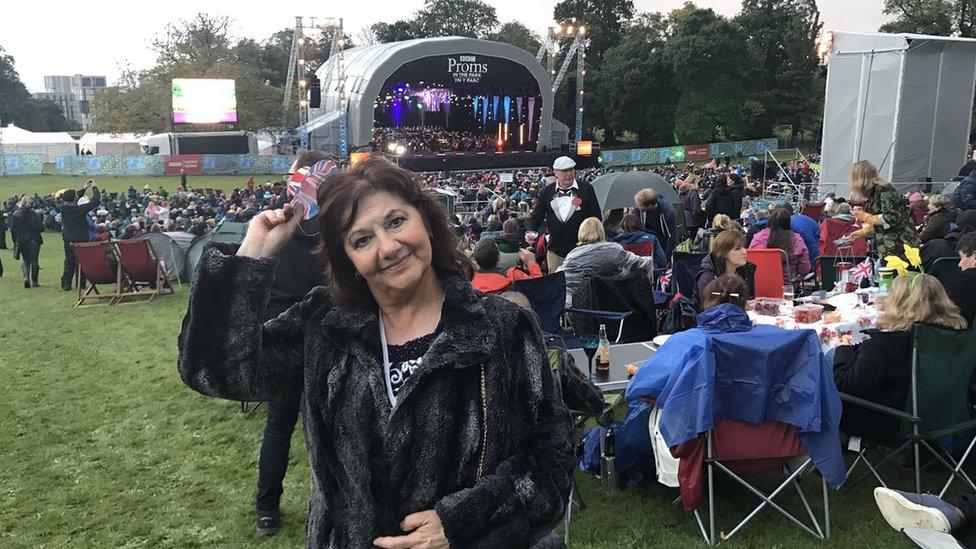
Facing the music: Caroline Jones enjoys BBC Proms in the Park in Swansea
Caroline describes a "very poor background", but fondly remembers her late aunt, Gloria Speed, a singer who appeared on the talent show Opportunity Knocks - The X Factor of its day - encouraging her to perform on a small stage constructed in the living room.
Her interest in performance continued in later life with acting parts, some television work and singing lessons.
"I would never say I could sing well," she says, before recalling her accidental audition with the Welsh National Opera in 1994.
Her rendition of Ivor Novello's 'We'll Gather Lilacs in the Spring' was deemed good enough for them to offer her a place in the chorus.
After school, Caroline combined her love of acting with sport - her other childhood passion - to train as a drama and PE teacher at the former Glamorgan College of Education.
Later, in her thirties, she set-up her own cafes - two in Porthcawl and one in Bridgend.
It was something she'd always wanted to do since landing her first job, aged 11, in Fellini's Cafe in Tonyrefail.
"People sometimes call me Carla because they think I am a Fellini, but they're like my surrogate family," she says.
Until 2005, she also spent over seven years working as a prison officer at the privately-run Parc Prison in Bridgend.
A stone's throw away from our table in the hospital is a site earmarked by the UK government for a new prison in Port Talbot.
Caroline recognises the local opposition to the proposal, saying it has to be "the correct site" for a prison, but repeats her belief that it could bring much-needed jobs to the area.
As she describes it, there are two sides to this coin - politics, as she's coming to realise, is the messy art of compromise.
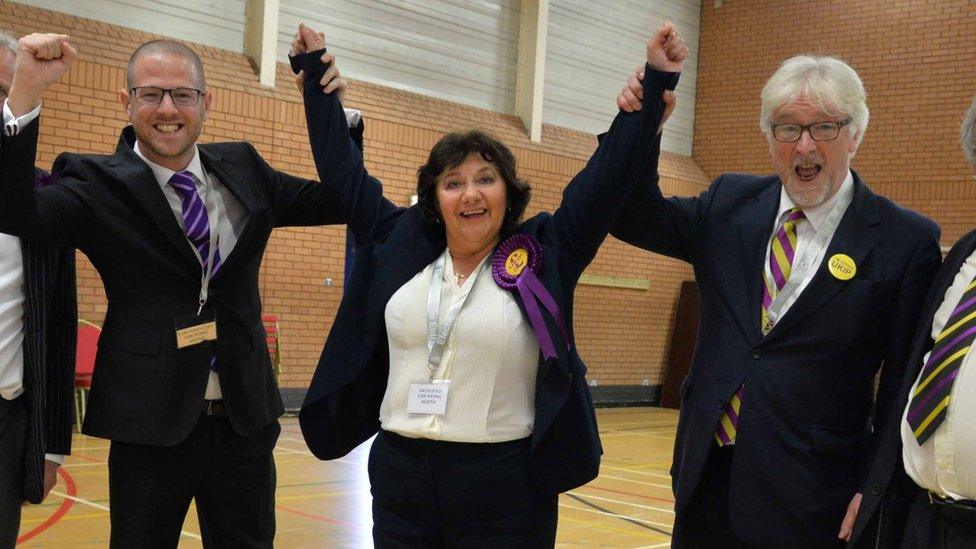
Caroline Jones celebrates her election to the Welsh Assembly in 2016
After several attempts, initially with the Conservatives before joining UKIP, she was elected to public office for the first time at the 2016 Welsh Assembly election.
Caroline was one of seven UKIP AMs to make history, winning seats for the party in the Senedd for the very first time.
But, time and again during our chat, she stresses that she isn't a tribal politician.
"If I wasn't representing UKIP I'd probably be independent," she says.
"I don't think it matters what political party you are as long as you do your best for your community."
So, what has she made of her first year in Cardiff Bay?
She says the "name-calling" in the chamber has "amazed and disappointed" her.
"I distinctly remember being called 'the rabid dogs' of UKIP.
"I went home and I said to my husband, 'a rabid dog?!' I find that incredible. Why would people say something like that?"
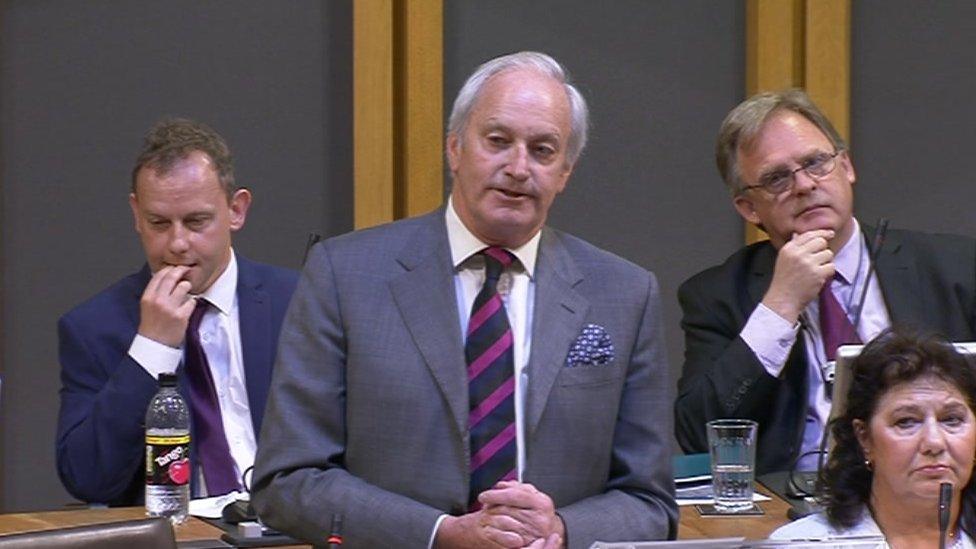
Neil Hamilton has earned himself a rebuke from the presiding officer on occasion
But what about the language used at times by UKIP's assembly group leader Neil Hamilton?
"Well, yes, of course, I don't condone from any party, my own included, incorrect terminology.
"I'd like to hold my head up high and say I'd never engage in negative politics, it's not what I'm paid for."
A month after being elected to the assembly, Caroline, who joined UKIP because of her Eurosceptic beliefs, would have been forgiven for breaking out the bubbly on the morning of June 24th last year, as it was announced that we'd voted to leave the European Union.
But she says she didn't celebrate.
"I just sat down, accepted the result for what it was and thought, 'right, now it's on with the job.'
"I've had no concerns about Brexit. I think it's the best thing we can do.
"I think we can do well as a country after we leave the EU. My concern is that the politicians are dragging their feet."
What about Wales? After all, we, as a country, receive more in funding from Brussels than we pay in and the majority of our exports go to the EU.
"I see a whole new world opening up for Wales and the UK outside of the single market and so on. There's a whole new world out there," she says.
"Wales will, I'm sure, have every penny that it has now and even more because I see more money coming in to the Treasury than what was previous."
If the referendum was an unparalleled high for UKIP, it has since been followed by a series of crushing lows.
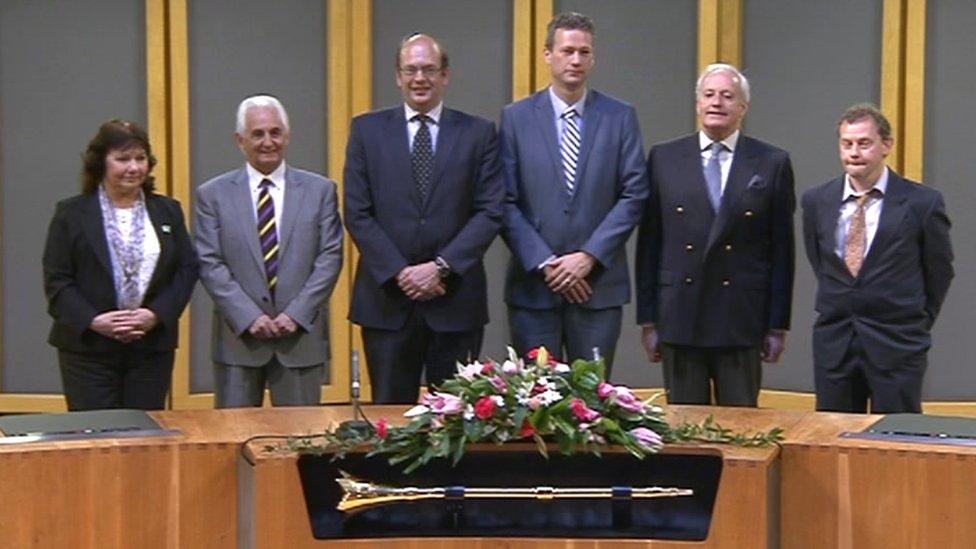
Sworn in - six of UKIP's seven Welsh Assembly members elected in 2016
In the assembly, where the UKIP group has dropped from seven to five members, many of the party's problems have stemmed from the decision to choose Neil Hamilton as leader in the Senedd over Nathan Gill.
Ahead of the contest, I remember Nathan Gill telling me he expected to win - Caroline's vote, he believed, would prove decisive.
But the UKIP AM for South Wales West says the result should not have shocked Mr Gill as she recalls telling him beforehand that he would not be receiving her support.
"I have no regrets in who I voted for," she says, as she felt "badly let down" by Mr Gill.
As a fellow UKIP candidate in the 2014 European elections, she recalls the support she gave his campaign, not only in terms of door-knocking.
"I supported Nathan financially throughout that campaign. It was £1,000 here for his campaign, it was £750 there. I put petrol in his car when he didn't have enough money.
"So I found it very, very difficult because I'd done all the campaigning and then he wanted to put his then friend David Rowlands above me on the candidate list."
I asked Mr Gill about these claims and he declined to comment.
"He's let the party down and he's let himself down," Caroline adds, with particular reference to his decision to renege on a promise not to double-job as a member of the assembly and of the European Parliament.
Leadership issues have also dogged the party nationally since Nigel Farage's post-referendum resignation - UKIP is in the middle of its third leadership contest in just over a year.
Of all the candidates in the running, Caroline invited three to the Twelve Knights pub in Port Talbot in August to address local members, but only David Kurten was able to attend.
Falling short of endorsing the London Assembly member - "he seems clued up and has the party at heart" - Caroline was unequivocal in her opposition to anti-Islam campaigner Anne Marie Waters.
"She's not palatable to me. I think she would take the party in a direction I wouldn't want it to go," she says.
"I would find it difficult to be in UKIP," she adds, if Ms Waters were to lead the party.
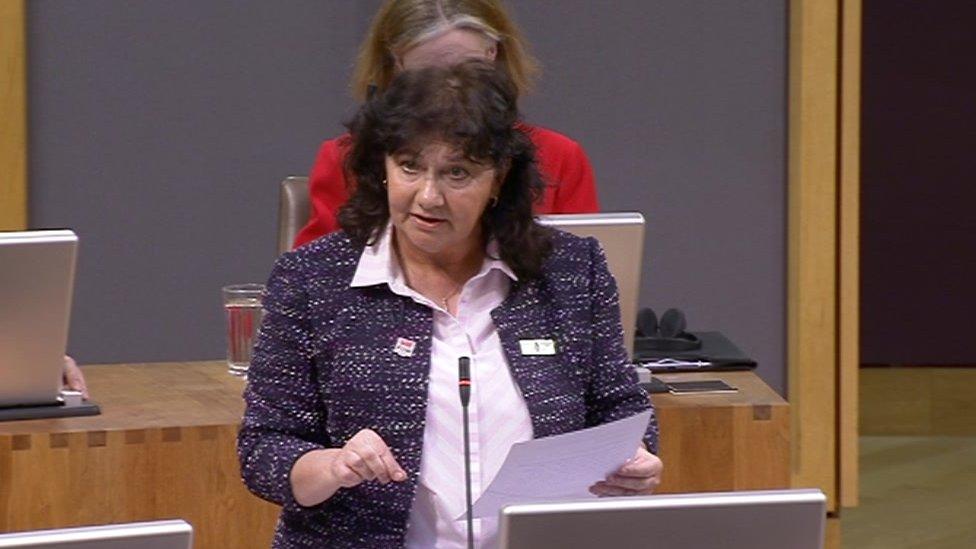
Whichever candidate is elected leader at UKIP's autumn conference at the end of September, Caroline says they've "got to stop the rot".
"I would love to do another term [as an AM]," she says, but unless the party's recent fortunes are reversed then she is "very concerned" that UKIP could be a one-term party in the assembly.
Having noticed the cross she wears on her necklace, I ask before leaving whether she's religious.
"I'd like to think of myself as a Christian," she says, adding that she prays at home in Margam, near Port Talbot, every night before bed.
"It's always something positive. I pray for a lot of people, all around the world, really."
Given their recent fortunes, party members may well ask her to keep UKIP in her prayers.
- Published1 September 2017
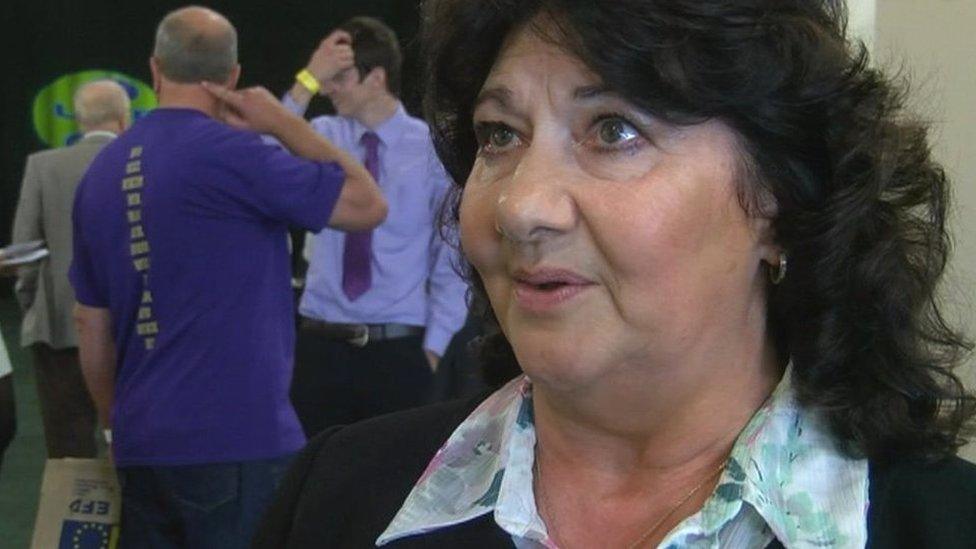
- Published26 February 2017
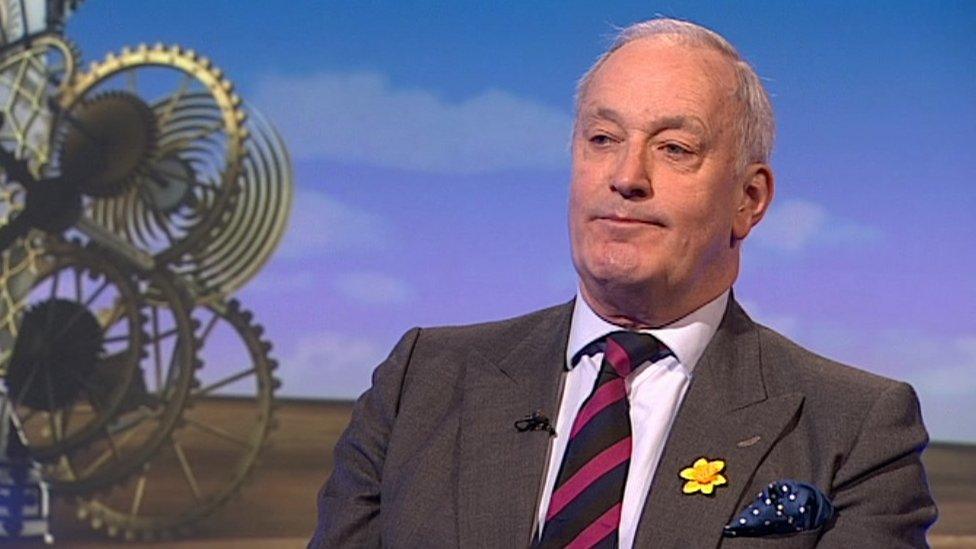
- Published13 September 2016
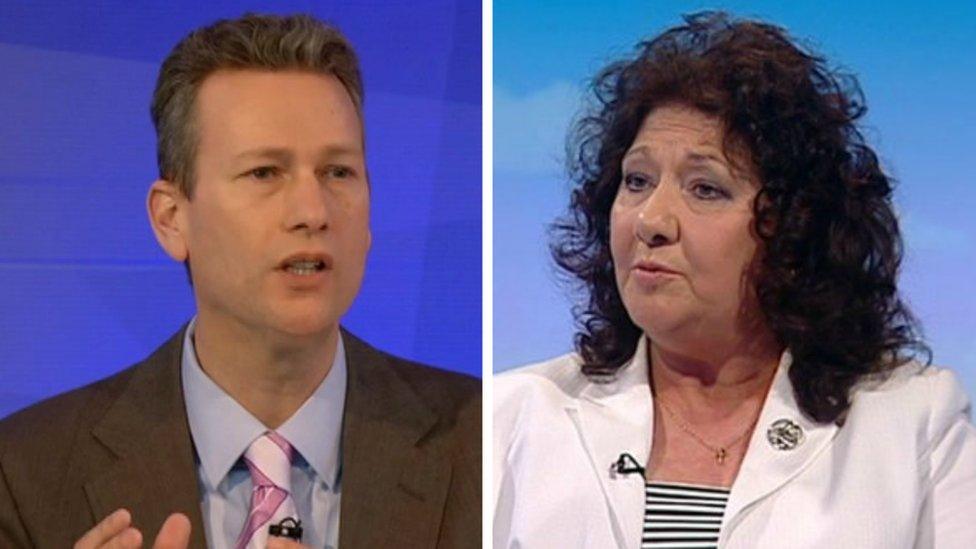
- Published24 January 2017
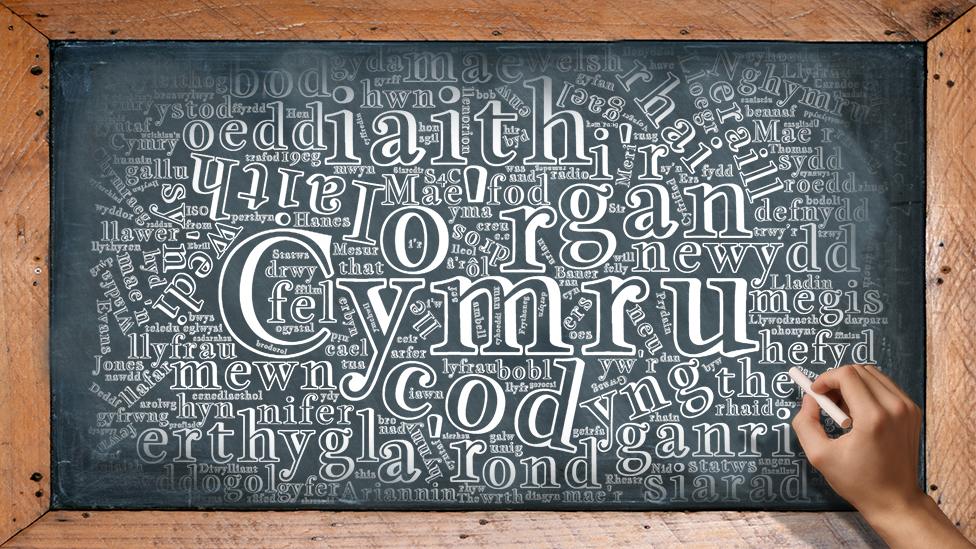
- Published18 May 2016
